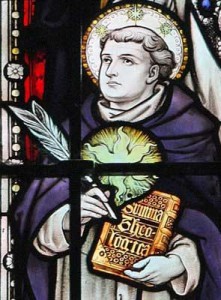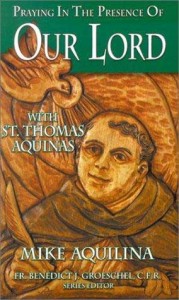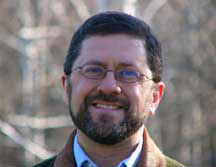 January 28 is the day the Catholic Church honors St. Thomas Aquinas. The Italian saint was a priest and is widely recognized as being one of the most influential figures in the study of theology. Here we have more on St. Thomas Aquinas from Mike Aquilina who he refers to as the “poet laureate of heaven”.
January 28 is the day the Catholic Church honors St. Thomas Aquinas. The Italian saint was a priest and is widely recognized as being one of the most influential figures in the study of theology. Here we have more on St. Thomas Aquinas from Mike Aquilina who he refers to as the “poet laureate of heaven”.
[powerpress]
Check out  Mike’s wonderful site “The Way of the Fathers”
From the Pope Benedict’s audience (from Vatican.va) reflecting on St. Thomas Aquinas….
 The life and teaching of St Thomas Aquinas could be summed up in an episode passed down by his ancient biographers. While, as was his wont, the Saint was praying before the Crucifix in the early morning in the chapel of St Nicholas in Naples, Domenico da Caserta, the church sacristan, overheard a conversation. Thomas was anxiously asking whether what he had written on the mysteries of the Christian faith was correct. And the Crucified One answered him: “You have spoken well of me, Thomas. What is your reward to be?”. And the answer Thomas gave him was what we too, friends and disciples of Jesus, always want to tell him: “Nothing but Yourself, Lord!”
Mike’s book that really helps to pray with St. Thomas you can find it here
This is the poem spoke about in our conversaton:
O Godhead hid, devoutly I adore Thee,
Who truly art within the forms before me;
To Thee my heart I bow with bended knee,
As failing quite in contemplating Thee.
Sight, touch, and taste in Thee are each deceived;
The ear alone most safely is believed.
I believe all the Son of God has spoken :
Than Truth’s own word there is no trucer token.
God only on the Cross lay hid from view,
But here lies hid at once the manhood too :
And I, in both professing my believe,
Make the same prayer as the repentant thief.
Thy wounds, as Thomas saw, I do not see;
Yet Thee confess my Lord and God to be.
Make me blieve Thee ever more and more,
In Thee my hope, in Thee my love to store.
O Thou, memorial of our Lord’s own dying!
O living bread, to mortals life supplying!
Make Thou my soul henceforth on Thee to live;
Ever a taste of heavenly sweetness give.
O loving Pelican! O Jesu Lord!
Unclean I am, but cleanse me in Thy Blood :
Of which a single drop, for sinners spilt,
Can purge the entire world from all its guilt.
Jesu! whom for the present veiled I see,
What I so thirst for, oh, vouchasafe to me :
That I may see Thy countenance unfolding,
And may be blest Thy glory in beholding. Amen.
Tags: disciples, mike aquilina, pope benedict, thomas aquinas
This entry was posted on Wednesday, January 28th, 2015 at 2:54 am
You can follow any responses to this entry through the RSS 2.0 feed.
This extraordinary Eucharistic hymn, by the great St. Thomas Aquinas, is a fan favourite among the faithful. This version regretably leaves out the second verse. The recording is from the CD illuminations, compiled by Dan Gibson. the Latin text and English translation follow:
| Latin text | An English translation | |
|---|---|---|
|
|
Tags: Dan Gibson, faith, last supper, st thomas aquinas, thomas aquinas
This entry was posted on Monday, January 28th, 2013 at 9:54 am
You can follow any responses to this entry through the RSS 2.0 feed.
I could have listened to Dr. James Hitchcock all day, he is absolutely fascinating. Â But the next best thing is to read his tremendous 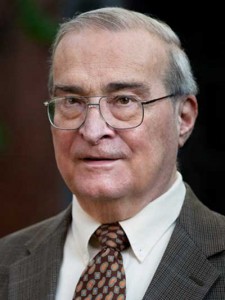 work, “The History of the Catholic Church:Â Â From the Apostolic Age to the Third Millennium”. Â The content is the best, the layout makes it so very accessible, and the storytelling is engaging…a must have and a perfect gift for family and friends! Â In our discussion, we discuss the influence of the papacy, Constantine, the 13th and 15th century, St. Augustine and St. Thomas Aquinas, and so much more. Â Not enough time, but so much fun. Â Don’t miss! Â One of my favorites of 2012!
work, “The History of the Catholic Church:Â Â From the Apostolic Age to the Third Millennium”. Â The content is the best, the layout makes it so very accessible, and the storytelling is engaging…a must have and a perfect gift for family and friends! Â In our discussion, we discuss the influence of the papacy, Constantine, the 13th and 15th century, St. Augustine and St. Thomas Aquinas, and so much more. Â Not enough time, but so much fun. Â Don’t miss! Â One of my favorites of 2012!
[powerpress]
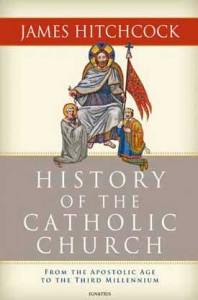 You can find the book here
You can find the book here
“For years, James Hitchcock has been our premier historian – a dissident from conventional wisdom, well-armed and solid. Here he pioneers a new method for presenting a long sweep of history: an orderly and altogether fascinating series of vignettes – of arguments, movements, distinctive persons, and concrete events. There is just enough narrative in these sequences to carry the reader along, but without involving her in excessive interpretation. This book provides both a great resource for easy reference, and a stimulating definition of a Christian humanism that holds in tension the transcendent and the down to earth, the holy and the sinful. This is a tension which Hitchcock maintains throughout.”
– Michael Novak
Tags: family, James Hitchcock, papacy, thomas aquinas, work
This entry was posted on Thursday, December 20th, 2012 at 1:57 pm
You can follow any responses to this entry through the RSS 2.0 feed.
Faith and Reason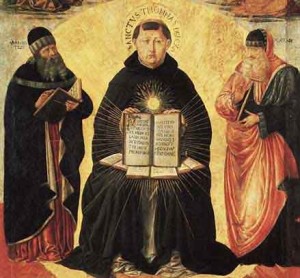
[powerpress]
“Come let us reason together, says the Lord†– Isaiah 1:18.
Many in our day strictly divide faith and reason, seeing science as based on logic and objective truth, but religion as solely emotional and subjective.
Not so, says the Catholic Church. Faith and reason complement and assist one another in the pursuit of truth. All truth is God’s truth and ultimately leads to Him who is Truth itself, Jesus Christ, so there is nothing to fear from scientific inquiry.
In fact, for centuries the Catholic Church was the patron of the arts and sciences. St. Thomas Aquinas used Greek philosophy to show the logical foundation of the Catholic Faith, many of the great scientific discoveries have been made by Catholic priests or scientists, convinced that the universe operated by fixed laws established by the one true God, not the mere whims of the gods as the pagans had previously believed.
Of course, faith is a gift and is not based on reason alone. Nevertheless, as Sir Thomas More says in the classic film A Man For All Seasons, “God made the angels to show His splendor, the animals for their innocence, and the plants for simplicity, but God made man to serve him wittily in the tangle of His mind.â€
Tags: catholic, catholic podcast, catholic prayer, cathollc spirituality, faith and reason, Faith and Reason Faith, jesus christ, thomas aquinas
This entry was posted on Monday, January 16th, 2012 at 8:16 am
You can follow any responses to this entry through the RSS 2.0 feed.
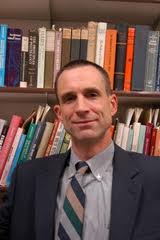 Episode 1 – What is Christian Apologetics? Who was St. Thomas Aquinas, his life, his times, and his contribution. What is “theology”? What is the “Summa”?
Episode 1 – What is Christian Apologetics? Who was St. Thomas Aquinas, his life, his times, and his contribution. What is “theology”? What is the “Summa”?
[powerpress]
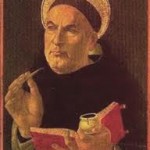 Question 1. article 1Â The nature and extent of sacred doctrine
Question 1. article 1Â The nature and extent of sacred doctrine
Whether, besides philosophy, any further doctrine is required?
Objection 1: It seems that, besides philosophical science, we have no need of any further knowledge. For man should not seek to know what is above reason: “Seek not the things that are too high for thee” (Ecclus. 3:22). But whatever is not above reason is fully treated of in philosophical science. Therefore any other knowledge besides philosophical science is superfluous.
Objection 2: Further, knowledge can be concerned only with being, for nothing can be known, save what is true; and all that is, is true. But everything that is, is treated of in philosophical science—even God Himself; so that there is a part of philosophy called theology, or the divine science, as Aristotle has proved (Metaph. vi). Therefore, besides philosophical science, there is no need of any further knowledge.
On the contrary, It is written (2 Tim. 3:16): “All Scripture, inspired of God is profitable to teach, to reprove, to correct, to instruct in justice.” Now Scripture, inspired of God, is no part of philosophical science, which has been built up by human reason. Therefore it is useful that besides philosophical science, there should be other knowledge, i.e. inspired of God.
I answer that, It was necessary for man’s salvation that there should be a knowledge revealed by God besides philosophical science built up by human reason. Firstly, indeed, because man is directed to God, as to an end that surpasses the grasp of his reason: “The eye hath not seen, O God, besides Thee, what things Thou hast prepared for them that wait for Thee” (Is. 66:4). But the end must first be known by men who are to direct their thoughts and actions to the end. Hence it was necessary for the salvation of man that certain truths which exceed human reason should be made known to him by divine revelation. Even as regards those truths about God which human reason could have discovered, it was necessary that man should be taught by a divine revelation; because the truth about God such as reason could discover, would only be known by a few, and that after a long time, and with the admixture of many errors. Whereas man’s whole salvation, which is in God, depends upon the knowledge of this truth. Therefore, in order that the salvation of men might be brought about more fitly and more surely, it was necessary that they should be taught divine truths by divine revelation. It was therefore necessary that besides philosophical science built up by reason, there should be a sacred science learned through revelation.
Reply to Objection 1: Although those things which are beyond man’s knowledge may not be sought for by man through his reason, nevertheless, once they are revealed by God, they must be accepted by faith. Hence the sacred text continues, “For many things are shown to thee above the understanding of man” (Ecclus. 3:25). And in this, the sacred science consists.
Reply to Objection 2: Sciences are differentiated according to the various means through which knowledge is obtained. For the astronomer and the physicist both may prove the same conclusion: that the earth, for instance, is round: the astronomer by means of mathematics (i.e. abstracting from matter), but the physicist by means of matter itself. Hence there is no reason why those things which may be learned from philosophical science, so far as they can be known by natural reason, may not also be taught us by another science so far as they fall within revelation. Hence theology included in sacred doctrine differs in kind from that theology which is part of philosophy.
For an online version of St. Thomas Aquinas’ “Summa” click here
“Christian Apologetics with Dr. R. R. Reno” explores numerous facets of faith and reason in the life of the Church and the world. Grounded on the work of giants, such as St. Thomas Aquinas, St. Bonaventure, Blessed John Newman, soon-to-be Blessed John Paul II, G. K. Chesterton, Blaise Paschal and Stephen Barr, Dr. Reno helps us to open our minds to make the journey to our hearts.
R. R. Reno is the editor at First Things: A Journal of Religion, Culture, and Public Life, and Professor of Theology, currently on leave from Creighton University. His theological work has been published in many academic journals. Essays and opinion pieces on religion, public life, contemporary culture, and current events have appeared in Commentary, and the Washington Post. In Fighting the Noonday Devil Reno suggests that putting ourselves at the disposal of what is real is what trains us for true piety. His other recent books include Genesis: Brazos Theological Commentary on the Bible and Sanctified Vision: An Introduction to Early Christian Interpretation of the Bible.
Tags: Blessed John Newman, catholic, catholic podcast, catholic prayer, cathollc spirituality, creighton university, faith, first things, r r reno, summa theologica, thomas aquinas, work
This entry was posted on Wednesday, May 4th, 2011 at 8:25 am
You can follow any responses to this entry through the RSS 2.0 feed.

